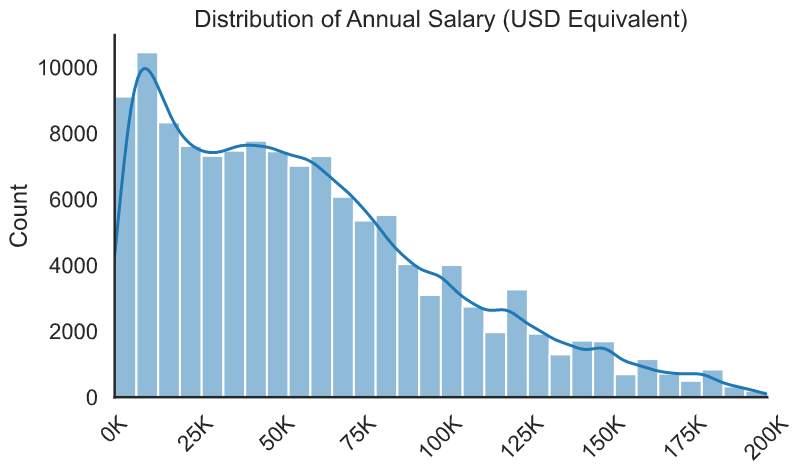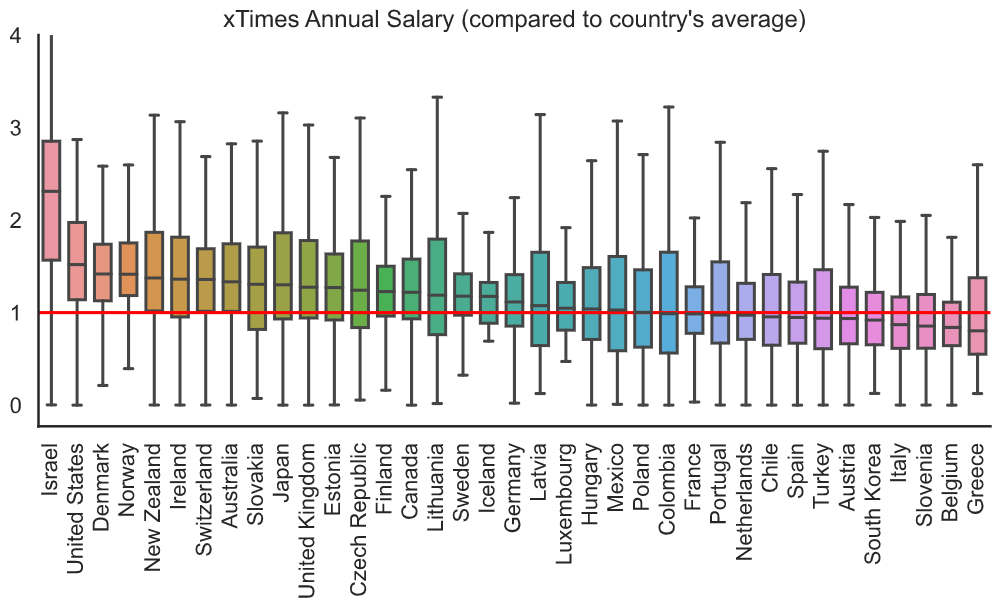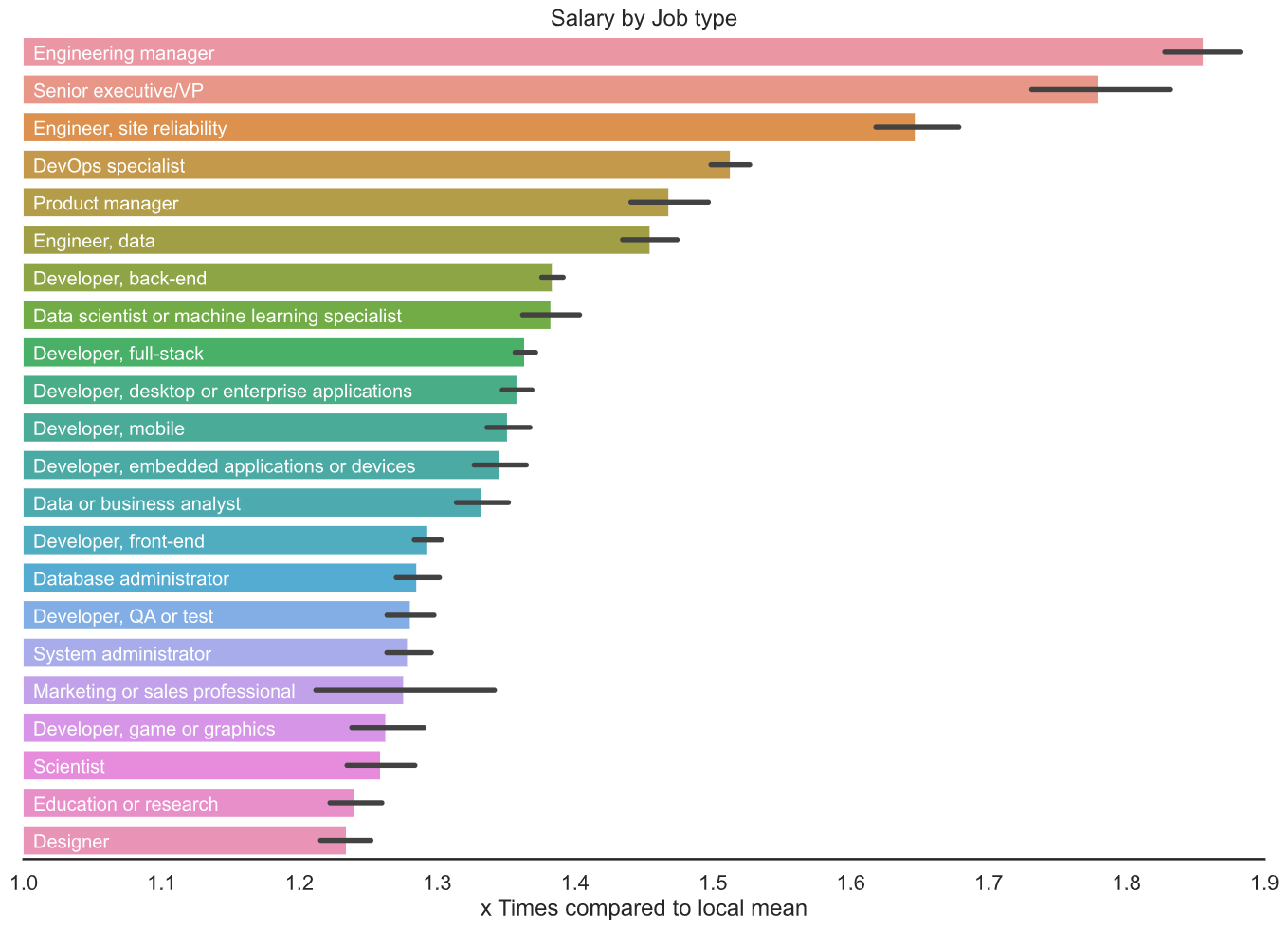Quick insight into IT development job market

When choosing my major, I faced a difficult decision: Whether to pursue an (other) Engineer career or to become the IT Engineer I thought was intended to be. Well, diving into the IT world at that age sounded like already too much computers for me, so I chose the former option.
Lately, I’ve been going around the question on what would’ve been like to pursue an IT career. After all, The IT field is often regarded as the hot field of the century. (Or at least when talking about remuneration.)
Lets do a quick check to see if the fomo keeps up with reality. To do so, we will be using the Stack Overflow Annual Survey to answer some simple questions :
- Question 1: How common are those 100+K USD jobs we often of ?
- Question 2: How well paid are developers in relation to the average working man per country? Does country of residence matters?
- Question 3: Which job types are be better paid?
Setting up the mood
Look at this chart, this is the distribution of Salary for all respondents from the 2020, 2019 and 2018 surveys.

I have discarded all those answers that reported a salary higher than 200,000 USD per year, and ended up with a population of 82000 to start with.
All in all we see that up to 75% of the responses fell under 84k USD per year. The Median here is 51k USD but that doesn’t tells us much. Getting to our first question, we find that around 16% of the individuals reported salaries higher than 100k USD.
Takeaway : You might have a head start, depending on where you live.
It might be interesting to break our analysis by location. What happens when we divide our population by countries?
To account for each country’s economic situation, let’s compare each group to it’s country’s average wage.

The insight here is that in countries like the US, Denmark or Norway, developer jobs are paid as much a 1.5 times the country’s average. Also, Israel holds the top score, with developers reporting as much as 2.4 times the regular salary.
Countries like France, Colombia or Poland, fell nicely into a 1:1 ratio. Which means that the wages are about the same as the country’s average.
Finally, I know one doesn't not change country like changing socks, but for those nomads out there : there might be an incentive to move to the left side !
Takeaway : Engineering AND management, the unreplaceable.
Let’s now break our data into job types. Are there any gaps ?
This next chart is what happens when we split by job. (Still keeping the country’s average weight as a reference point.)

Little wonder that specialization jobs are at the top of the chart. Engineer Managers are at the best paid overall, earning nearly as double than the local mean.
Everything surrounding web and application development falls into the middle range. Here, only front-end developers are the exception, for which the earnings are lower than their full-stack or mobile counterparts.
Educators, gaming developers, and designers are the less lucky of the pack. Seems that those creative jobs come with some disadvantages.
Conclusion :
The impact that location might have on your salary is noticeable. Some countries offer better paid jobs than others. We were also able to illustrate the difference it makes to be specialized. Also, those who have tackled the management challenge are much better off.
All in all it has been an interesting exercise and look forward to get the new data set, it will be interesting to see how this evolves over time.